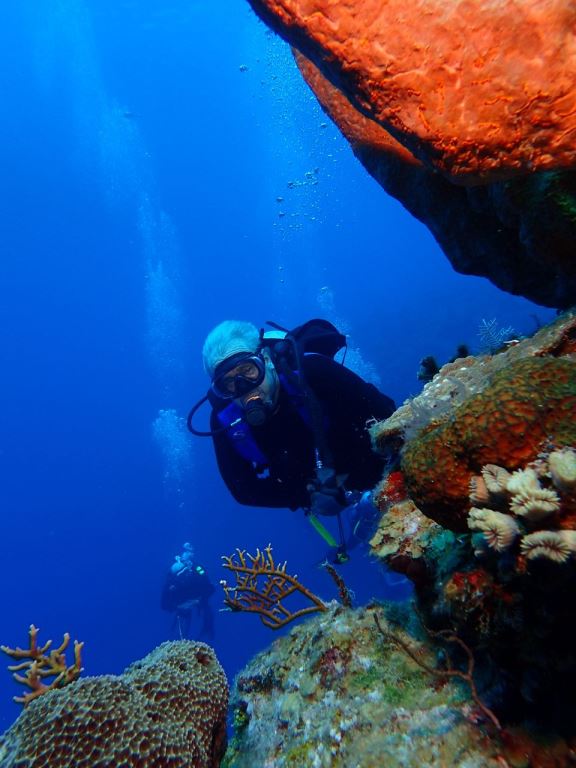
Growing up in a Chicago suburb, Kent Taylor always knew he wanted to become a Spartan. His family has always bled green – his dad and two sisters attended Michigan State University (MSU). As a big fan, Taylor desired to also pursue his diploma from the green-and-white university on the other side of Lake Michigan.
What he didn’t realize then was how much he’d eventually learn to desire a much green-er planet.
Attending MSU in the 1960s, Taylor was initially interested in social justice causes. He later found his true calling in environmental advocacy.
“The ‘60s struggles for social justice were affecting me greatly by my junior year, but being a fisherman and outdoorsman, I also became concerned about our planet and inspired by that era’s emerging environmental movement,” Taylor said. “The pictures that came back from the Apollo mission were a revelation. That beautiful ‘blue marble’ was gorgeous, yet very small, delicate and alone.”

To scratch the social justice itch, Taylor pursued a master’s degree focused on affirmative action policy. But the images of the Earth inspired him so much, he also vowed that environmental stewardship would be part of his avocation, regardless of his vocation. After decades of activism and educational outreach, he ultimately realized his goal was to respond to and reduce the collective carbon footprint.
“I didn’t realize the College of Agriculture and Natural Resources (CANR) was researching renewable energy, but that is exactly what they do in the Department of Biosystems and Agricultural Engineering (BAE),” he said.
A student caller in the MSU Greenline program called Taylor asking for a donation to MSU. Although Taylor graduated from the College of Social Sciences, the student caller listened well to Taylor’s current interests and connected him with the CANR faculty and staff working in sustainable energy.
“It all just fit so well,” he said. “I have to credit the Greenline student who called me asking for a donation. She did so well listening to my interests and finding the department that fit so well with my passion.”
Taylor says that “donating is subjective to the donor” – meaning it’s important for individual passions to be aligned with personal causes. He started by supporting annual projects for the South Campus Anaerobic Digestor on Farm Lane. However, his vision was to create something long-term – an endowment – while still continuing to support projects in the short-term with more immediate impacts.
Upon learning of the concentrated work of BAE faculty and students in renewable energy, he wanted to help current Spartans make a difference. Taylor created the M. Kent Taylor Graduate Assistantship in Biosystems & Agricultural Engineering, an endowment to support graduate students in the academic pursuit of alternative, sustainable energy technologies to reduce the carbon load on the atmosphere and oceans.
“We are so appreciative of Mr. Taylor’s support of graduate student research,” said Bradley Marks, BAE chair. “We are dedicated to finding sustainable energy solutions that are both scientifically and practically viable. This perpetual support will help sustain this important research for years to come, with the important impact of supporting the graduate researchers who ultimately will be the leaders of the future in this field.”
Learn more about how you can support graduate students.
“I hope that students and faculty who receive support from the endowment will continue to develop, test and deploy solutions that are integral to saving our planet from ourselves. If they do, and together we solve this existential threat to our planet, it will all have been worthwhile.” Kent Taylor, MSU alumnus
“I hope that students and faculty who receive support from the endowment will continue to develop, test and deploy solutions that are integral to saving our planet from ourselves. If they do, and together we solve this existential threat to our planet, it will all have been worthwhile,” Taylor said.
This gift also has tax benefits. Taylor established his endowment with a bequest from his estate and transfers his individual retirement account (IRA) required minimum distribution (RMD) to grow the endowment with his annual gifts. With this option, donors aged 70½ years and older can give any amount up to $100,000 per year from an IRA directly to a qualified institution, such as MSU, without having to pay income taxes on the money.
Learn more about IRA RMD options.
“I’m leveraging the huge resources of MSU to make an impact and it’s a beautiful thing,” he said. “I wasn’t looking for write-offs, but I learned of the IRA RMD. I can take the required distribution and send it directly to the endowment, avoiding taxes. This is an avenue that can be a sweet spot for donors, and it’s how I’m growing my endowment annually.”
“This creates a legacy I did not think was possible,” he continued. “It’s nice to be able to continue to contribute after you’re gone – and in my case, while I’m still here. It gives you a core of satisfaction down deep. I’m doing something about my passion for the natural world and it’s self-sustaining. It will be here forever. It gives me peace.”
He says his love of MSU started on the surface because of his family’s loyalty to the school. However, his deep appreciation came the day he first stepped on campus during freshman orientation.
“The counselors told us to look to your left and to your right. Unlike other schools, they said one of you will struggle to get through. As a university, we are behind you and we’ll help you do everything to keep you in school,” he recalled. “That’s what I love – the dedication. Dedication not just to the academics, but to the individual students.”
Graduating summa cum laude from MSU in 1971, Taylor earned a bachelor’s degree in social sciences, receiving a multi-disciplinary degree in psychology, sociology and economics. He then went on to earn a master’s degree in labor and industrial relations from MSU and eventually became a personnel manager with an affirmative action specialty.
While employed in the corporate world for several years and later as a small businessman and self-employed consultant, Taylor remained dedicated to giving many hours to his passion of saving the natural world. He volunteered for over 20 years at the Shedd Aquarium in Chicago as a docent presenting on coral reef ecology while scuba diving within their 12,000-gallon coral reef exhibit.

Upon seeing firsthand, the discoloration and deterioration of the coral reefs while scuba diving in the Caribbean, Taylor learned from marine biologists at the Shedd that this discoloration, called bleaching, was likely caused by the warming waters. It was then he realized the reefs were largely being destroyed by anthropogenic global warming due to society’s dependance on fossil fuels.
By 2007, Taylor left the Shedd Aquarium as volunteer emeritus and switched volunteer efforts to join the Climate Reality Project, a nonprofit established by Al Gore with a focus on raising awareness and providing solutions for climate change. Taylor served as one of the organization’s first volunteer climate presenters, educating audiences on global warming.
“I’ve given over 150 presentations to school groups, garden clubs, civic organizations. It’s been very fulfilling of my avocation. I still do it to this day and am proud to be part of the organization. It’s a fantastic nonprofit.”
Following retirement from the business world, Taylor said he continues to volunteer and advocate for the planet, climate change and the oceans.
Learn more about how CANR is addressing topics of natural resources and environmental stewardship, including climate change, energy and water quality.



 Print
Print Email
Email





